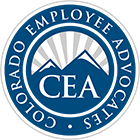As readers of this blog know, Colorado recently passed a law severely restricting the types of situations in which non-compete agreements can be used.
You may be asked to sign a non-compete agreement when you first start a job. This agreement forbids you from working in a position that competes with the business if you leave.
You may still have to sign a non-compete in these situations
The new law prohibits these agreements except in certain situations. You can now be asked to sign a non-compete agreement only if it is associated with the sale of a business or if you earn 60% or more above the highly compensated employee threshold.
In 2022, highly compensated employees are those earning $101,250 or more annually. This number is likely to increase each year.
Employer requirements
Even if your employer falls within one of these exceptions and can ask you to sign a non-compete agreement, there are still other requirements they must follow.
Your employer must provide you notice of the non-compete agreement before you accept the job, or if you are a current worker, at least two weeks before the effective date of the agreement.
The notice must be in writing and signed by you. The notice must be detailed, identifying the non-compete agreement containing certain specific language. A copy of the non-compete agreement must be attached to the notice.
The non-compete cannot be overly broad
Provided proper notice is required, the non-compete agreement must be narrowly tailored. This means it must be no more restrictive than is reasonably necessary to protect your employer’s trade secrets and other confidential information.
If your employer asks you to sign a non-compete agreement in violation of this new law, you may be able to file a claim against them. You can ask for damages including compensatory damages, statutory damages and attorney’s fees.
Before doing so, it can help to speak with an employment attorney who examine your situation and determine if your employer is in violation of the law.

